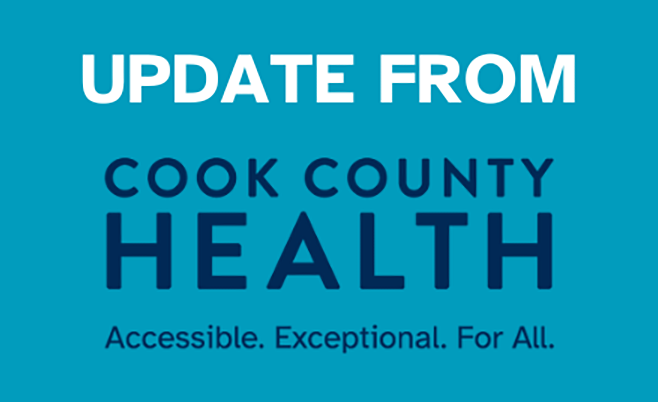County services will shift from emergency care to “medical home” model
This week Cook County will start sending letters to about 115,000 of its low-income residents inviting them to enroll in the county’s new Medicaid program.
Adults under 65 with an income of up to 133% of the federal poverty level will be eligible for Medicaid beginning in 2014 in states that choose to participate in the Affordable Care Act Medicaid expansion.
In Cook County, the expanded eligibility will begin even sooner, in January 2013. Cook County applied for and received a federal waiver to let the law kick in a year early.
“We are excited not only because we got the waiver, we also get an opportunity to transform our healthcare system into the way it should be,” said Dr. Ram Raju, CEO of Cook County Health Services.
The new Medicaid program, called County Care, will operate on a “medical home” model – which means the county’s patients would have a doctor, a nurse, a social worker, and a medical assistant assigned to manage their health care.
“What we do in the old model is, if you come through the door, you are my problem, I’ll treat you well, I’ll give you prescriptions. Then, you are not my problem until you come back next time six months later,” said Dr. Raju. “In the medical home model, even when you go home, you are still my responsibility.”
To begin enrollment County Care, the county plans to reach out to every single eligible person currently on its books.
“It’s a massive task, because it is a lot of people we need to reach within a short period of time,” said Dr. Raju. “But one good advantage is that most of the people are already in our system.”
A total of about 250,000 people in Cook County are probably eligible for County Care, but the county first plans to make contact with those who have already come through the Cook County system or one of its community health centers. After Nov. 26, low-income adults who are not already on the books will be able to call to find out whether they are eligible.
County Care to provide mental health and substance abuse services
Medicaid is generally administered by states, but the federal waiver offered under Obamacare allowed counties to apply to create Medicaid programs jointly operated by the county and the federal government. The costs of the expanded coverage under County Care bypass the Illinois’ fiscally rocky Medicaid system – they’re split between the county and the federal government.
Come 2014, eligible people will be able to leave County Care and enroll in Medicaid through the state of Illinois. County Care patients are required to go to a provider within the county’s network of hospitals and affiliated Federally Qualified Health Centers, whereas recipients of state Medicaid can go to any doctor that accepts Medicaid.
But Dr. Raju said he hopes that by then, they will want to choose County Care. In addition to setting up patients in a “medical home”, County Care will provide mental health and substance abuse services, which Illinois Medicaid currently does not cover. The lack of mental health services in the region has been a topic of ongoing controversy.
“If there are substance abuse issues, we do not want them to get lost in the system,” he said. And he thinks the medical home model should be in use around the country. “We believe that is the future of the healthcare delivery model in this country.”

